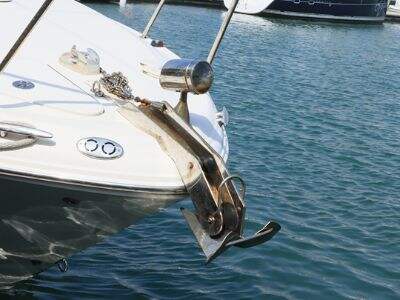The sea water can be hard for our Shenghui galvanized steel anchor. They can also break if they spend too much time in saltwater. But don't worry! There are ways to prevent this from happening. Read on to find out why galvanized steel anchors break in saltwater and what we can do to prevent it.
Saltwater’s Detrimental Effects on Galvanized Steel Anchors
Saltwater can be mighty tough on galvanized steel anchors. When saltwater comes in contact with the protective coating on the anchors it can lead to rust. This rust can undermine the marine anchor, causing them to break more easily.
Why Galvanized Anchors Don't Work in Salt Water?
The combination of the salt water and the fact that galvanized steel rusts explains the cause why galvanized steel anchors break in salt water. One is simply they may not have enough coating around the anchors to keep them safe. That makes them more prone to rust. Another reason is that the stainless steel anchor may not be maintained properly, resulting in the buildup of rust that weakens the walls of the metal.
Why Maintenance is Important?
One of the most important aspect to maintain galvanized steel anchors is to avoid corrosion in saltwater. Inspecting the anchors regularly for rust and keeping them clean can help them last longer. And it's a good idea to store the anchors dry when not in use, and to rinse them with fresh water after use in saltwater.
How to Prevent Your Window Treatments from Rusting?
There are a couple of ways to keep galvanized steel anchors from exposing themselves to rust. One is to encase the anchors in a special coating, such as marine paint or epoxy, for protection. This coating allows the metal to stay as dry as possible from the very salty water. One way is with sacrificial anodes, which are made of a metal that corrodes faster than do the galvanized steel anchors. These anodes corrode first, to protect the boat anchor.
If Anchors are Rusted; What do you do?
If you notice that your galvanized steel anchors are already rusting, it may be time to consider replacing them with anchors constructed from metals such as stainless steel or aluminum. These materials also do not rust in saltwater and thus, have a longer service life.

 EN
EN
 AR
AR BG
BG CS
CS DA
DA NL
NL FI
FI FR
FR DE
DE EL
EL HI
HI IT
IT JA
JA KO
KO NO
NO PL
PL PT
PT RO
RO RU
RU ES
ES SV
SV TL
TL IW
IW LT
LT SR
SR SK
SK UK
UK VI
VI SQ
SQ HU
HU MT
MT TH
TH TR
TR FA
FA AF
AF MS
MS GA
GA AZ
AZ BN
BN LA
LA
